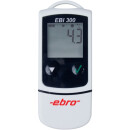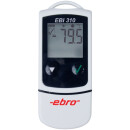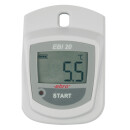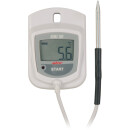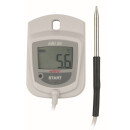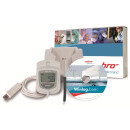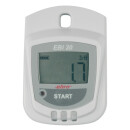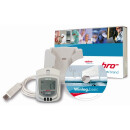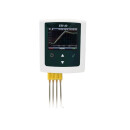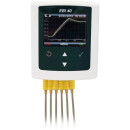Functionality and advantages of data loggers in the transportation and storage of goods
Introduction
Data loggers are essential devices for monitoring and recording environmental conditions such as temperature, humidity and shocks. They play a crucial role in the transportation and storage of goods to ensure the quality and safety of the products. In this article, we explain the functionality and benefits of data loggers in these processes.
How data loggers work
Sensors and data logging
Data loggers are equipped with highly sensitive sensors that continuously measure environmental conditions such as temperature and humidity. These sensors record precise data that is crucial for the quality assurance of goods.
Data recording and storage
The data collected is recorded at regular intervals in the data logger's internal memory or transmitted in real time. Modern data loggers have large memory capacities that enable long-term data recording.
Reliable power supply
Data loggers are usually powered by long-lasting batteries to ensure continuous operation. Some models offer external power supply options.
Data transmission and analysis
The collected data can be transmitted via USB, Bluetooth, WLAN or mobile radio. Specialized software enables detailed analysis and visualization of the recorded data.
Advantages of data loggers during transportation and storage
Quality assurance for sensitive goods
Data loggers continuously monitor environmental conditions and immediately detect deviations that could affect the quality of food, pharmaceuticals or chemical products. This is crucial for maintaining optimal storage and transportation conditions.
Prevention of damage
Data loggers help to prevent damage to goods by detecting unfavorable environmental conditions at an early stage. Problems such as excessive heat, humidity or shocks can be identified and rectified in good time.
Documentation and proof of compliance with regulations
The recorded data serves as proof of compliance with the prescribed storage and transportation conditions. This is particularly important in regulated sectors such as the food and pharmaceutical industries.
Increased efficiency and process optimization
By analysing the data, weak points in the transport and storage processes can be identified and optimized. This leads to improved efficiency and cost savings
Increase customer satisfaction
Data loggers help to ensure product quality, which increases customer satisfaction. Transparent information about the conditions during transportation and storage increases customer confidence.
.png)
